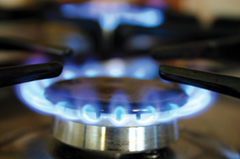Fuel poverty strategy
 Action to tackle fuel poverty, including a £2 million boiler replacement scheme due to start in September, and lower cost gas and electricity, has been unveiled by Alex Attwood. agendaNi takes a look at the latest strategy.
Action to tackle fuel poverty, including a £2 million boiler replacement scheme due to start in September, and lower cost gas and electricity, has been unveiled by Alex Attwood. agendaNi takes a look at the latest strategy.
Rising fuel costs and increasing unemployment means that almost half of people living in the province are finding it difficult to heat their homes.
The Department for Social Development published ‘Warmer Healthier Homes – a new Fuel Poverty Strategy for Northern Ireland’ in March.
Under the plans, 1,300 homes across Northern Ireland will get their boilers replaced in a £2 million pilot scheme and the application process is expected to begin in September.
Launching the strategy, Minister Alex Attwood said the 47-page strategy will attempt to deal with the three contributors to fuel poverty: low income, high fuel prices and poor energy efficiency. He also called on energy providers, all government departments and voluntary sector partners to work together to tackle the problem.
“More than 44 per cent of people in Northern Ireland live in fuel poverty, a figure more likely to rise than fall as time goes on,” Attwood said. “People cannot afford to heat their homes adequately. People need help. This is a serious situation and one which requires a combined effort to combat.”
The Assembly has also passed new legislation, as part of the Housing (Amendment) Bill, to allow for energy brokering. Once the Bill receives royal assent, it will for the first time, allow the Housing Executive to broker energy costs for their tenants at a discounted rate.
The low-cost fuel plans follow on from the example of the Citizens Energy Corporation, established in 1979 in the United States, which has delivered millions of gallons of discount home heating oil to poor and elderly households throughout 23 different states.
Severe weather during winter highlighted the need for more affordable fuel for vulnerable households, the Minister said.
He commented: “Now, more than ever, government needs to exhaust every possibility in an effort to help people in need.”
“In this current financial climate, with our economy still in recession and cuts in welfare benefits hitting home, it is crucial we do what can be done to protect vulnerable people, families and households,” commented Attwood.
The previous fuel poverty strategy, published in 2004, set a target to completely eradicate fuel poverty by 2016 in all households and in vulnerable households by 2010. However, the latest document points out that these goals were set at a time of “relatively low fuel prices” and in the current economic climate “will not be achieved”. The department has said it “remains committed” to eradicating fuel poverty.
Attwood stated that the new pilot boiler scheme initiative should help those who do not meet the criteria for the Warm Homes Scheme.
Fuel poverty defined
A household is in poverty if, in order to maintain an acceptable level of temperature in their home, the occupants would have to spend more than 10 per cent of their income on all household fuel use.
In numbers:
302,310 households in fuel poverty (2009)
10% increase from 2006
76% of people aged 75+ are in fuel poverty
70% of people use oil to heat their homes
Source DSD





